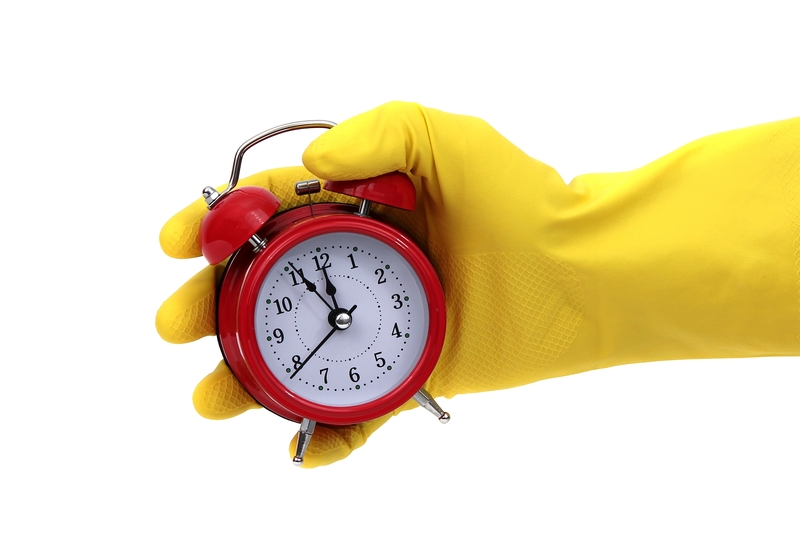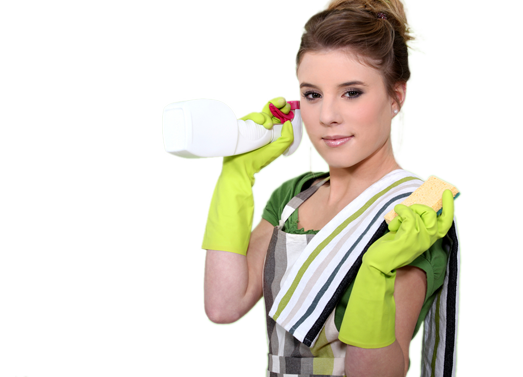Gentle and Effective Ways to Clean Jewellery
Posted on 04/06/2025
Gentle and Effective Ways to Clean Jewellery: A Comprehensive Guide
Keeping your jewellery sparkling and beautiful requires regular cleaning, but using harsh methods can damage delicate pieces. In this comprehensive article, we'll explore gentle and effective ways to clean jewellery at home, ensuring each piece maintains its brilliance and integrity. Whether it's heirloom rings, gemstone necklaces, or everyday earrings, these easy methods and expert advice will keep your treasures shining.

Why Is Gentle Jewellery Cleaning Important?
Jewellery pieces are often crafted from precious metals, delicate gemstones, and intricate settings. Aggressive cleaning agents, abrasive brushes, and improper techniques can cause irreversible harm, including scratches, discoloration, or even loose stones. Therefore, it is essential to adopt safe and effective jewellery cleaning practices that protect both the appearance and value of your ornaments.
Understanding Your Jewellery: Materials and Sensitivities
Before exploring various jewellery cleaning methods, it's important to identify the materials of your pieces. This determines the safest approaches and ensures you avoid unintentional damage. The main categories include:
- Gold Jewellery: Soft and prone to scratches, gold is best treated with mild solutions.
- Silver Jewellery: Prone to tarnishing but generally robust; can be effectively cleaned with gentle methods.
- Platinum Jewellery: Durable but still benefits from careful cleaning routines.
- Gemstones (Diamonds, Sapphires, Rubies, etc.): Often secure but some can be sensitive to chemicals.
- Porous Stones (Pearls, Opals, Turquoise): Extremely delicate, requiring the gentlest care.
- Costume Jewellery: Often plated and easily damaged by abrasive or chemical-based methods.
Now that you know your jewellery type, explore the best gentle cleaning techniques suitable for each.
Best Gentle Methods to Clean Jewellery at Home
1. Mild Soapy Water: The Universal Solution
For most types of jewellery (except highly porous stones), a mild solution of dish soap and warm water is the safest and most effective jewellery cleaning method. Here's how to do it:
- Mix a few drops of mild dish soap into a bowl of lukewarm water.
- Soak the jewellery for 10-15 minutes to loosen dirt and grime.
- Use a soft-bristle toothbrush to gently scrub crevices (avoid harsh brushing).
- Rinse thoroughly with clean water to remove all soapy residue.
- Dry with a lint-free cloth, avoiding paper towels that may scratch surfaces.
Tip: For gold, platinum, diamond, and many colored gemstone pieces, this is both gentle and reliable.
2. Special Care for Silver: Baking Soda Paste
Silver is susceptible to tarnishing. For a gentle and effective cleanse:
- Mix baking soda with water to make a soft paste.
- Apply gently to the silver surface using your fingers or a soft cloth.
- Rub delicately on tarnished areas (avoid scrubbing gemstones or engraved details).
- Rinse thoroughly and dry completely.
Alt: Try lining a bowl with aluminum foil, add hot water, a tablespoon of baking soda, and place the silver jewellery in the bowl for a quick tarnish lift. Remove and dry promptly.
3. Gentle Cleaning for Pearls and Porous Stones
Delicate gems such as pearls, opals, turquoise, and amber are highly sensitive to water and chemicals. For these, follow this careful approach:
- Dampen a soft, clean, lint-free cloth in lukewarm water with a drop of mild soap.
- Gently wipe the gems--never soak or submerge them.
- Wipe again with a cloth dampened only with water to remove soap traces.
- Lay flat to air dry--avoid hanging which may stretch stringing material in pearls.
Never use ultrasonic or steam cleaners for pearls and porous stones.
4. Vinegar for Non-Porous Metals
A simple vinegar soak works wonders for plain gold or sterling silver jewellery (avoid stones):
- Soak the piece in white vinegar for 10-15 minutes.
- Brush gently with a soft toothbrush if needed.
- Rinse and pat dry with a lint-free cloth.
This method is not suitable for costume jewellery or stone-set pieces due to the potential for loosening adhesives or harming sensitive settings.
5. Commercial Jewellery Cleaners: With Caution
There are many jewellery cleaning solutions available commercially, designed for specific materials. Always:
- Check the label to ensure compatibility with your jewellery type.
- Follow instructions exactly.
- Test on a small, inconspicuous area first.
When in doubt, stick to gentle homemade methods or consult a professional.
5 Expert Tips for Long-Term Jewellery Care
- Remove Jewellery When Necessary: Take off rings, earrings, or necklaces when using harsh chemicals, exercising, or swimming--chlorine and salt can damage metals and gemstones.
- Store Properly: Store in a jewellery box lined with soft fabric or in individual pouches to prevent scratching and minimize tarnish.
- Polish Gently: Use jewellery polishing cloths, not paper towels or tissues, to add shine without abrasion.
- Annual Professional Check: Have a jeweller inspect settings and clasps yearly, especially for pieces with prongs or intricate mounts.
- Keep Away From Cosmetics: Apply lotions, perfumes, and sprays before wearing jewellery to avoid buildup.
What to Avoid When Cleaning Jewellery
Many well-intentioned at-home methods can inadvertently harm your valuables. Avoid:
- Abrasives: Toothpaste, baking soda scrubs, or scrubbing brushes with stiff bristles can scratch metals and soft gemstones.
- Harsh Chemicals: Bleach, acetone, alcohol, and ammonia may corrode settings or discolor stones.
- Extreme Temperatures: Very hot water or sudden changes from cold to hot can cause gemstones to crack.
- Ultrasonic Cleaners: They are safe only for certain hard stones and loose metals; otherwise, stones may loosen or suffer internal cracks.
How Often Should You Clean Your Jewellery?
The frequency depends on how often you wear your pieces and the material:
- Everyday Jewellery (wedding rings, studs): Clean monthly with gentle soap and water.
- Occasional Wear: Clean seasonally or before long storage.
- Pearls: Wipe after every wear to remove body oils and maintain luster.
- Vintage or Fragile Items: Limit to minimal, occasional cleaning, and consult a professional for deep cleans.
Safe Jewellery Cleaning for Different Stone Types
Diamonds & Hard Gemstones
- Use mild soapy water and a soft toothbrush.
- Avoid strong detergents and ultrasonic cleaners unless the stone is securely set and free of inclusions.
Colored Gemstones (Sapphires, Rubies, Emeralds)
- Warm water and a few drops of gentle dish soap.
- Soft brush, careful rinsing, and pat-dry.
- Emeralds are often oil-treated; avoid soaking or using commercial cleaners.
Soft or Porous Stones (Pearls, Opal, Turquoise, Amber)
- Wipe only--do not soak.
- Never expose to harsh chemicals, high temperatures, or ultrasonic cleaners.
- Use a damp cloth or dab with a drop of mild soap and wipe immediately after.

Gentle and Effective Jewellery Cleaning FAQs
Can I use toothpaste to clean jewellery?
Toothpaste is abrasive and may scratch metals or gemstones. Stick to mild dish soap and water.
Is it safe to clean all gemstone jewellery at home?
While many hard stones (diamonds, sapphires) can handle gentle cleaning at home, fragile, soft, or treated stones may require professional care.
How do I clean costume jewellery without damaging it?
Use a slightly damp, soft cloth to wipe surface dirt. Avoid submerging in water or using strong cleaners, as these can dissolve adhesives or cause peeling.
What is the easiest at-home jewellery cleaner?
A simple mixture of warm water and a few drops of mild dish soap is safe for most hard metal and stone jewellery.
Conclusion: Shine on Safely with Gentle Jewellery Cleaning
Maintaining the brilliance of your favourite rings, necklaces, earrings, and heirloom pieces doesn't require harsh chemicals or abrasive tools. By focusing on gentle and effective cleaning techniques for jewellery--like using mild soapy water, soft brushes, and non-abrasive cloths--you can preserve both beauty and value for years to come. Remember to always adjust methods based on the materials, store your jewellery properly, and when in doubt, consult a professional for advice. With these simple routines, your collection will remain as dazzling as the moments they commemorate.
For more tips on jewellery care, check our related articles and never miss an update on safe and gentle ways to clean all your fine jewellery!




